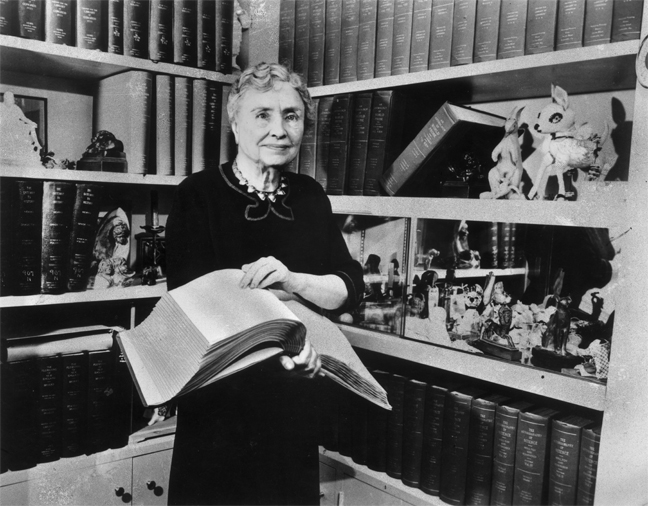Helen Keller (1880 – 1968) was the iconic American author, political activist, and lecturer, famous for becoming the first deafblind person to earn a Bachelor of Arts degree. The story of how Keller’s teacher, Anne Sullivan, broke through the isolation imposed by a near complete lack of language, allowing the young Keller to blossom as she learned to communicate, has become widely known through the dramatic depictions of the play and film The Miracle Worker. A remarkable human being, Keller never allowed her disabilities to destroy her powerful sense of optimism. Keller once famously said, “Out of this sorrowful experience I understand more fully all human strivings, thwarted ambitions, and the infinite capacity of hope.” In this fascinating clip from a documentary on her life story, Keller shares her greatest regret and how she uses it as a powerful tool for empathy: “It is not blindness or deafness that bring me my darkest hours — it is the acute disappointment in not being able to speak normally. Longingly, I think how much more good I might have done if I had only acquired natural speech. But out of this sorrowful experience I understand more fully all human strivings, thwarted ambitions, and the infinite capacity of hope.”
SEE ALSO: Philosopher Alan Watts On The Question “What If Money Didn’t Matter?”
SEE ALSO: Understanding That A Meaningful Life & A Happy Life Are Two Different Things
SEE ALSO: 75 Years In The Making: Harvard Just Released Its Epic Study On What Men Need To Live A Happy Life


